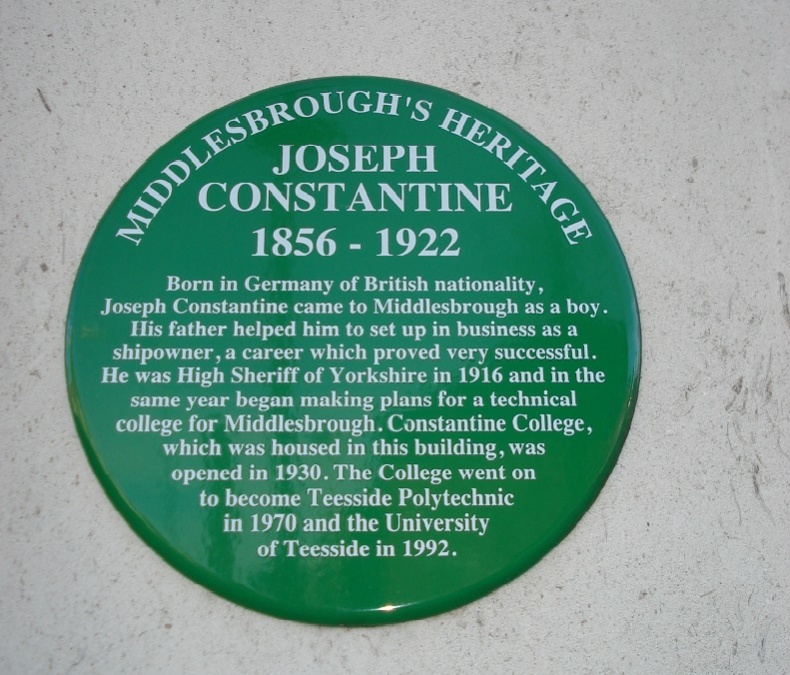
Constantine, Joseph
1856-1922
Shipping Magnate
Joseph Constantine was born in Germany to West-Yorkshire parents. His father was an engineer who worked on the Schleswig-Holstein railway (one of the main lines through central Germany). He was brought back to England to study at Newcastle Grammar School but moved to Middlesbrough in 1881 to make his fortune.
In 1885 his father helped Joseph purchase a share of the cargo ship ‘Homewood’. The business grew remarkably and, by 1914, the Constantine shipping company had 22 ocean-going steamships as well as several smaller craft. During the First World War, 13 ships were lost and 32 sailors died in the efforts to supply war-starved Britain. Ships weren’t the only thing lost, Joseph’s sons fought in the war and the youngest didn’t return.
Joseph died in 1922, but not before rebuilding the fleet. His two surviving sons, Robert and William, inherited the business and the family fortune was split equally between his sons and two daughters. The family-owned business lost even greater numbers of ships during the Second World War but the company diversified and survived. It now invests in specialist logistics, including fine art transportation and renewable energy.
As one of the ‘new towns’ of the nineteenth century, Middlesbrough was described in the 1860s as both an ‘infant Hercules’ by those impressed with its rapid industrial growth, and as the ‘British Ballarat’ for its lawlessness (Ballarat in Australia was then famed for its lawlessness). The rapid growth in population meant the state struggled to keep up with needs. Philanthropists such as Henry Bolckow (1806-1879) stepped in to provide much-needed services. This is seen with the benefit of hindsight to have helped establish a great tradition in Middlesbrough for philanthropy.
Joseph Constantine saw a need in Middlesbrough to provide higher education to complement Teesside’s reputation for engineering works and steel production. He made it clear in his lifetime the importance he placed on education and outlined his plans for improved technical instruction. In his will, he left £80,000 to establish a college, which was named ‘Constantine College’. In 1930 the college was opened by the Prince of Wales offering courses in metallurgy, engineering and chemistry. In 1992, the college, by then known as Teesside Polytechnic, achieved university status. Teesside University now offers courses to almost 19,000 students.
References
Constantine Group History. Available here (Accessed: 28/06/2018).
History of Teesside University (1992) Available at: here (Accessed: 28/06/2018).
Joseph Constantine Green Signed Photo. Available at: here (Accessed: 28/06/2018).
Lomas, R. (2009). An encyclopaedia of North East England, Edinburgh: Birlinn Ltd, pp. 54-5.
Taylor, D. (2004). Conquering the British Ballarat: The Policing of Victorian Middlesbrough, Journal of Social History, 37, 3, pp. 755-771.
Vernon, R. (2010). The Constantine Group 1885-2010. Available at: here (Accessed: 28/06/2018).